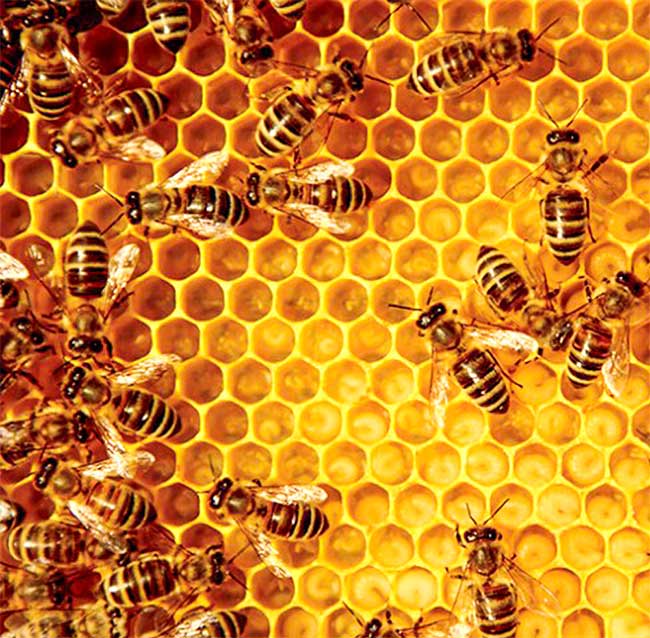The benefits of propolis extend beyond enhancing skin beauty and treating acne; it also aids in anti-aging and disease prevention.
Propolis is a complex mixture of resins with various components depending on the source materials and the type of bees that collect them. Alongside the process of foraging for nectar and pollen, honeybees also gather tree resin from different buds and flowers in their habitat. This resin is then chewed by the honeybees, mixed with their saliva to form a new substance known as propolis.
Propolis can be brown, black, or green. The color varies based on the plant sources available to the bees, with dark brown being the most common.
Bees use their mandibles to scrape the protective resin layer from flower buds and young shoots, mixing it with a bit of saliva and other secretions like wax before bringing it back to the hive.

Propolis is a highly valued product.
Propolis is used by bees to line all the holes in the brood chamber, repair honeycombs, seal small cracks in the hive, and reduce the size of the hive entrance. The benefits of propolis also include encasing larger dead animals or insects found in the hive and mixing it with wax to seal brood cells. Due to its antibacterial, antifungal, and antiviral properties, propolis plays a crucial role in protecting bee larvae from diseases.
Among bee products like honey, pollen, and royal jelly, propolis is one of the most valuable products, with a price comparable to that of royal jelly.
Currently, propolis is processed into forms such as tablets, capsules, soft gels, or liquid. Depending on the intended use, people may use pure powdered propolis or extract it using various solvents like ethanol or glycol. In our country, the harvesting of propolis has not yet been conducted due to the low production of propolis among bee colonies and the lack of attention from beekeepers towards this product. The average yield of propolis is 0.2 kg per colony per year.
Benefits of Propolis
- Propolis contains antioxidants, as well as antibacterial, antiviral, and antifungal properties. It also includes a range of nutrients such as flavonoids, vitamins, minerals, and enzymes;
- Propolis can help treat abscesses, acne, aging, allergies, minor burns, nasal issues, and throat cancer, as well as digestive problems, bad breath, and inflammation of the oral and throat mucosa;
- Additionally, propolis and its extracts are widely used in skincare cosmetics due to their tissue regeneration capabilities. With its antibacterial and antifungal properties, propolis offers numerous benefits across various cosmetic applications;
- Propolis has been used in folk medicine for centuries. With its antibacterial, antioxidant, anti-ulcer, and anti-tumor effects, propolis has garnered significant attention in recent years as a potential organic compound for use in medicine and cosmetic products. Furthermore, propolis is also widely used in food and beverages with claims of maintaining or improving human health.
Propolis is one of the few natural compounds that have been widely used throughout ancient and modern history. Its pharmacologically active molecules include flavonoids, phenolic acids, and esters, which have various effects on bacteria, fungi, and viruses. Moreover, propolis and its components exhibit anti-inflammatory effects, modulate immune activity, and exhibit anti-tumor properties. Additionally, propolis has been shown to be effective in lowering blood pressure and cholesterol levels.
Daily use of propolis not only supports effective disease treatment but also serves as a safe and natural way to protect the health of women and loved ones.


















































